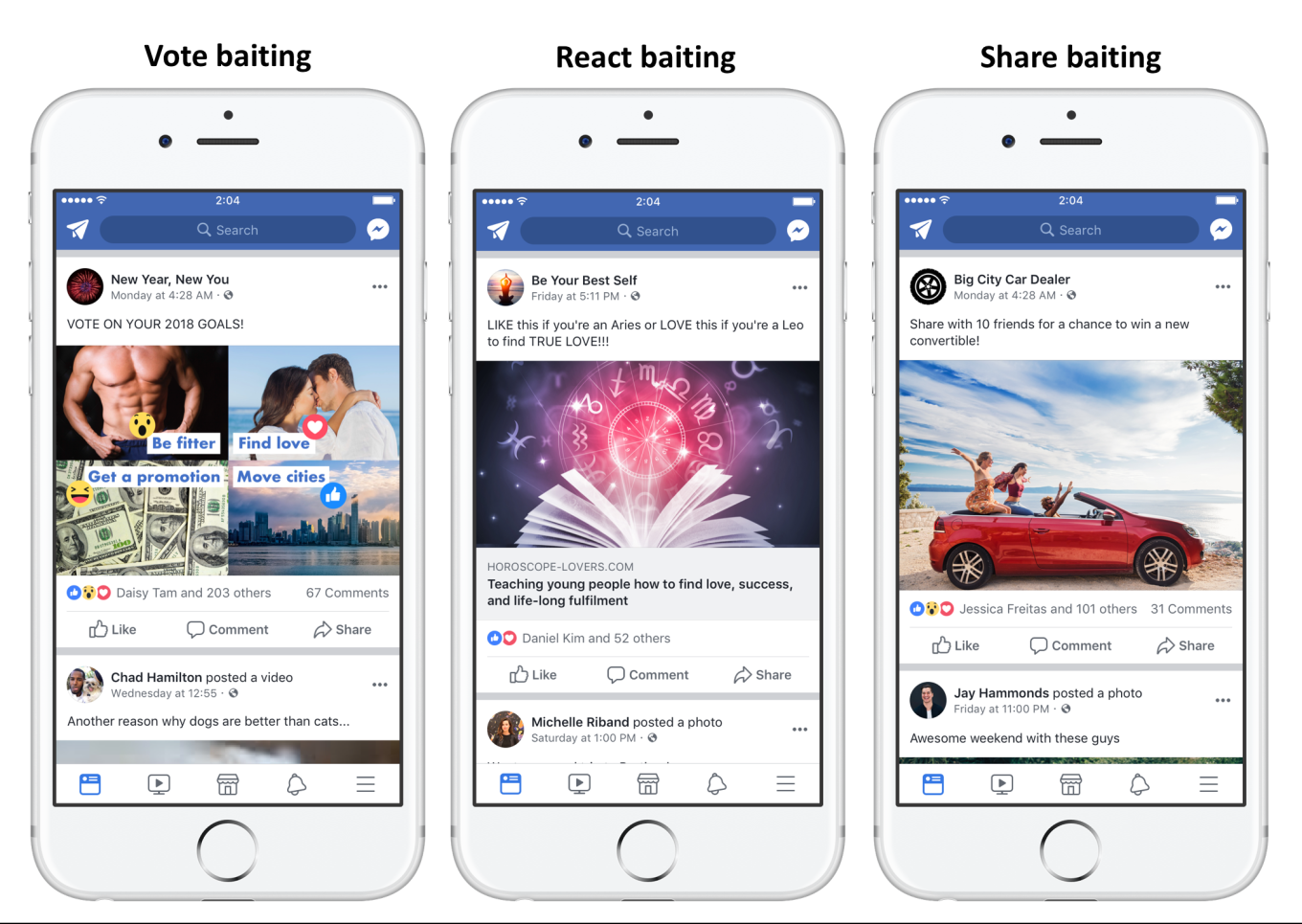It can be overwhelming to think about the vast number of posts that get shared on Facebook daily. That volume is about to get smaller though, as Facebook has made a stunning announcement. They are moving towards penalizing content that engages in what people call “engagement begging” or “engagement bait”.
What is engagement begging?
Chances are you’ve fallen trap to a post that has shamelessly begged or baited for you to like, comment, or share. In the early days, the begging was done straight out. “Please share and like” was a sign off on any type of post so common it could have become the new goodbye. Put people slowly turned away with that, finding new and creative ways to get people to engage.
These posts often have incentives such as “share with a friend to win a free trip” or “tag a friend whose name starts with C”. This works to get content shared, which in turn helps the Page owner and author grow their reach.
What types of posts fall under this?
Facebook has done a good job clearly defining which posts they are targeting. The top three posts they’re targeting are what they labeled vote baiting, react baiting and share baiting.

Vote baiting posts often feature two or more options, typically in a collage format. Users are then asked to “vote”, with each image being assigned one of Facebook’s engagement emojis. React baiting is similar, but usually features one image. For example, it will post a zodiac sign asking people who have that sign to like it. Share baiting posts ask users to share the content, usually in order to “win” a contest.
What will happen?
Facebook has tweaked their Newsfeed algorithm to have “stricter demotions” for pages and content that use engagement bait tactics. In a few weeks offends will have their total reach reduced. Serial offenders will be hit the hardest. Facebook is trying to play fair though. They’ve stated that engagement beggars can get their reach back with good behavior. If they start sharing quality content, they’ll redeem themselves in the eyes of Facebook.
Will any posts be exempt?
There were some exceptions that Facebook laid out. For example posts about missing children, raising money for a cause, or travel tips are all okay. What these exceptions show is that it’s less about the begging aspect and more about the quality of content.
Why now?
With the intense focus and criticism on Facebook and other social media sites lately around the Russian fake news scandal, it makes sense Facebook is looking at what types of content are being shared. These pages that create these engagement begging posts are often linked to websites with poor quality, are clickbait heavy or are spammy in other ways. Facebook is essentially trying to clean house, weeding out all the spammy pages and posts it has neglected for a long time.
Conclusion
For content creators, social media managers, and brands this news shouldn’t affect much. Producing quality content is already a priority for most. It’s the spammy, low-quality websites that need to be worried. Although it’s not clear how well this tactic will work, and what further impacts this move will have, it’s a step in the direction that favors quality content- something brands should be happy about.
If you want to learn more about content creation or social media feel free to contact us!

